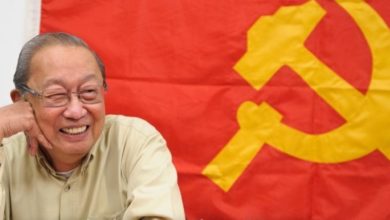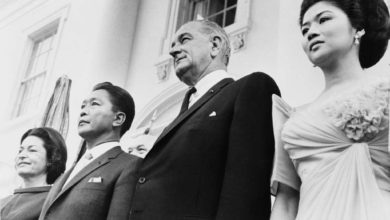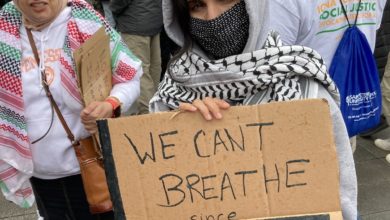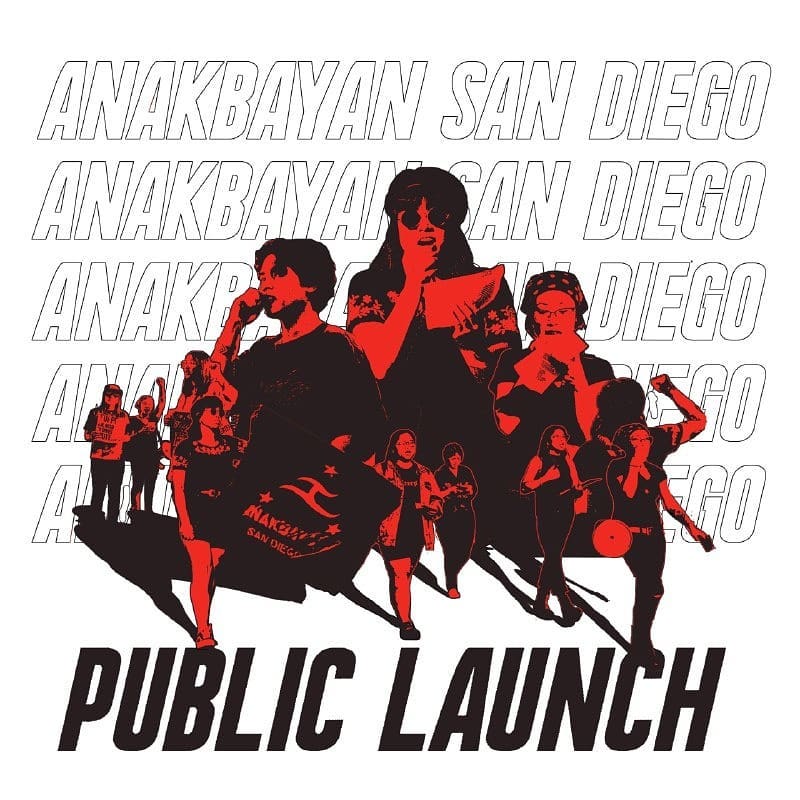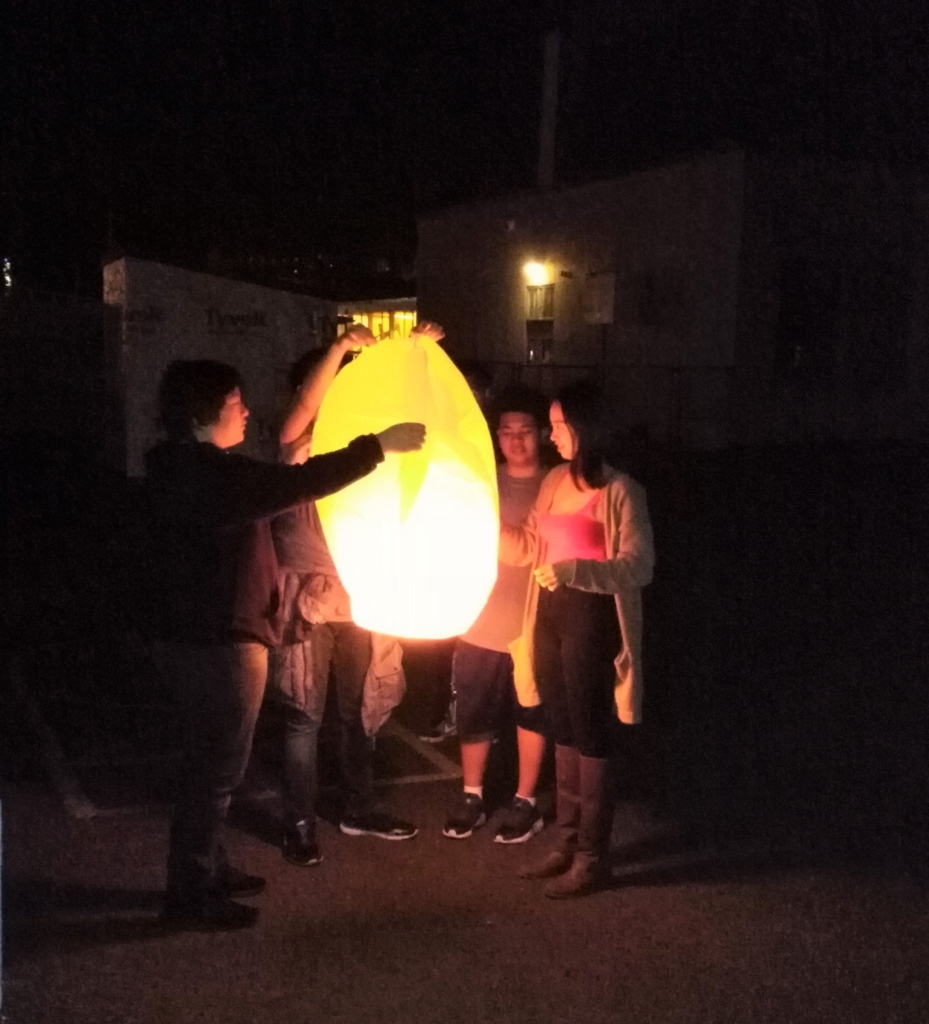
On April 6, a wide variety of socialist, anti-imperialist and Philippines solidarity groups convened in Seattle’s Southside Commons to hear firsthand reports from the Philippines, particularly in those areas that have been ravaged by the military under the cover of Philippine President Rodrigo Duterte’s criminal “war on drugs.” Convening groups included BAYAN USA PNW, the International Coalition for Human Rights in the Philippines (ICHRP) and MALAYA, with endorsers Party for Socialism and Liberation – PSL, Rainier Beach Key Club, Got Green, Town Hall Seattle, PUSO Seattle, Southside Commons, GABRIELA Seattle, Lionswire Communications, Climate Justice Alliance, 350 Seattle, Committee In Solidarity with the People of El Salvador (CISPES), Changelab, Anakbayan Seattle, Chinatown International Distict (CID) Coalition / Humbows Not Hotels, and Na’ah Illahee Fund.
Philippines military operations against Marawi
Michael Alcantra, current general secretary of Anakbayan Seattle, presented a startling report on the “Counter Insurgency” actions by the Philippines military which have been concentrated in Mindanao, and in particular in the city of Marawi. In response to the “occupation” of Marawi by Islamic fundamentalist fighters claiming affiliation with ISIS, the Duterte government undertook the wholesale siege of Marawi in 2017. When government forces declared victory after five months of indiscriminate destruction, hundreds of thousands had been displaced and virtually the entire city lay in ruins. Since then, martial law has prevailed and the displaced thousands have been denied the opportunity to return, despite their repeated appeals to the government. Several local organizations such as Tindeg Ranao have sprung up among the displaced communities to spearhead the effort to return home in an impressive display of people power under the most difficult of conditions.
The complicity of U.S. imperialism in facilitating these crimes is made clear by the increased aid provided by the Unite States government to the Duterte administration for “counter insurgency operations” in the wake of the aggressive actions. The Trump administration voiced its approval for these crimes against the people of the Philippines by increasing aid for “counter insurgency operations” to the Duterte administration to $111 million in 2018, up 233 percent from $47.5 million in 2017. These subsidies, along with the military aid that the Philippines already receives from the government of the United States directly support and enable the campaigns against the people being carried out by the reactionary Duterte administration.
Resistance brutally suppressed
Jill Mangaliman, an activist and member of GABRIELA Seattle reported on the way in which the Duterte regime has also used these counter-insurgency actions as a cover for overtly political repression. This anti-democratic action has been directed against Filipinos involved in union organizing, peasant associations and others who are taking peaceful action against the actions of the government. Ongoing efforts to displace and privatize farmlands have led to the imprisonment, harassment and even killing of political dissidents opposed to these projects, which the government justifies by calling them “terrorists.”
The majority of people in the Philippines, around 70 percent of the population, are tenant farmers and peasants who do not own the land they work. Several of these organizations have launched efforts to win the rights to the land which has been their ancestral home for generations in some cases. These efforts to win their rights through the established legal channels have been frustrated again and again by the obstinate administration.
*The “War on Drugs” in the Philippines
The war on drugs unleashed by Duterte in 2016 has raged continuously, with an estimated 14,000 people executed by military, paramilitary and police forces in the course of the campaign. While the ongoing attacks are ostensibly targeted towards the users and sellers of drugs, people with no connection to the narcotics trade have frequently also been found among the dead.
In a great many cases there appears to be little or no evidence to support the assertions by police and military personnel that their victims are at all tied to the drug trade. Instead, political opponents of Rodrigo Duterte and domestic critics of the regime have also been targeted for suppression in connection with the “war on drugs.” Union organizers, tenant associations and other working class bodies are also being subject to harassment and disruption. Prominent organizers and community leaders have found themselves arrested on trumped up and often fraudulent charges. Without due process, these people can languish in prison for years without ever seeing a courtroom or being able to face their accusers. To date, there are more than 400 political prisoners in the Philippines.
Duterte and Trump
Pam Tau Lee, the chair of the newly formed International Coalition for Human Rights in the Philippines-US (ICHRP-US) gave an enlightening presentation on the posturing on the part of Duterte. In early 2017, the carefully managed nationalist public image Duterte presented led some to believe that he might take an anti-imperialist stance in relation to the United States government under Trump. Yet, when the two met at the meeting of ASEAN in 2017 that illusion quickly melted away. Both leaders were seen to work hand-in-hand for the accomplishment of their mutual goals of exploitation in the Philippines, each praising the other for his leadership.
Duterte himself has made calls for “charter change,” or amendments to the constitution of the Philippines, to be made that would expand executive power tremendously and dissolve the congress, leaving him in an effectively autocratic position of power. These sorts of unapologetically anti-democratic sentiments have come to characterize both Duterte and his administration more generally.
All three speakers were unanimous in their call for the prevention of another fascist regime in the Philippines. They reminded us that we are engaged in one struggle with many fronts, and must stand together in order to face down the common enemies of the working class all over the world.

